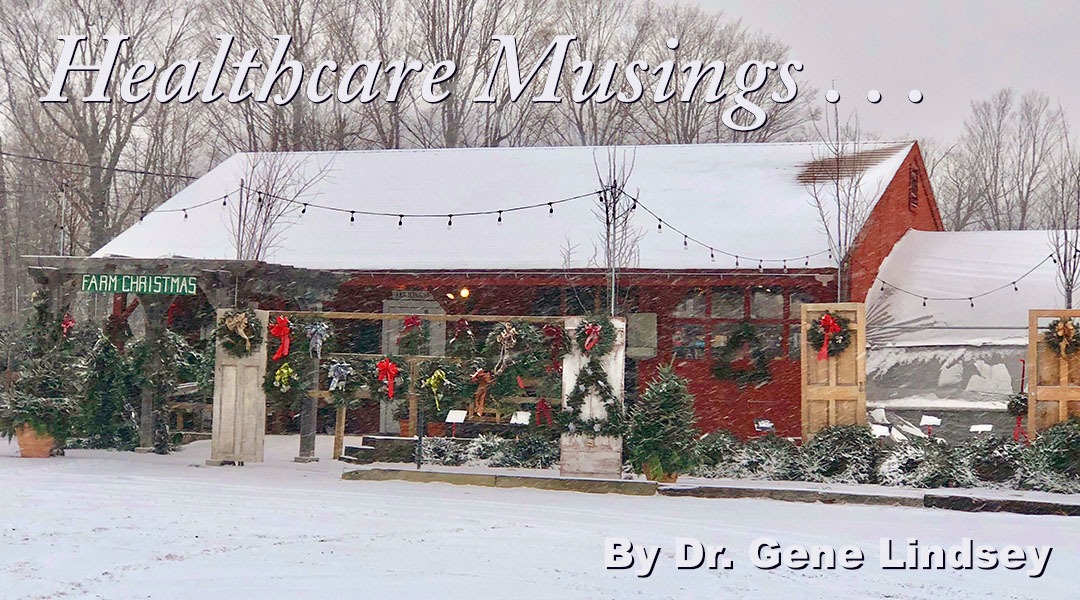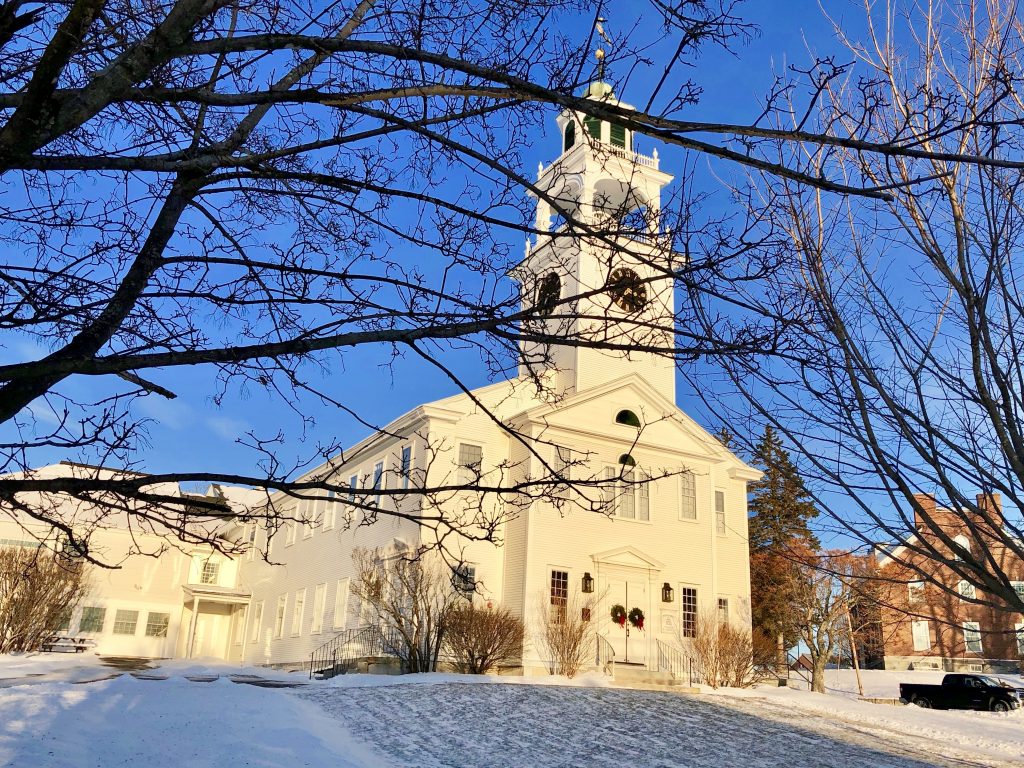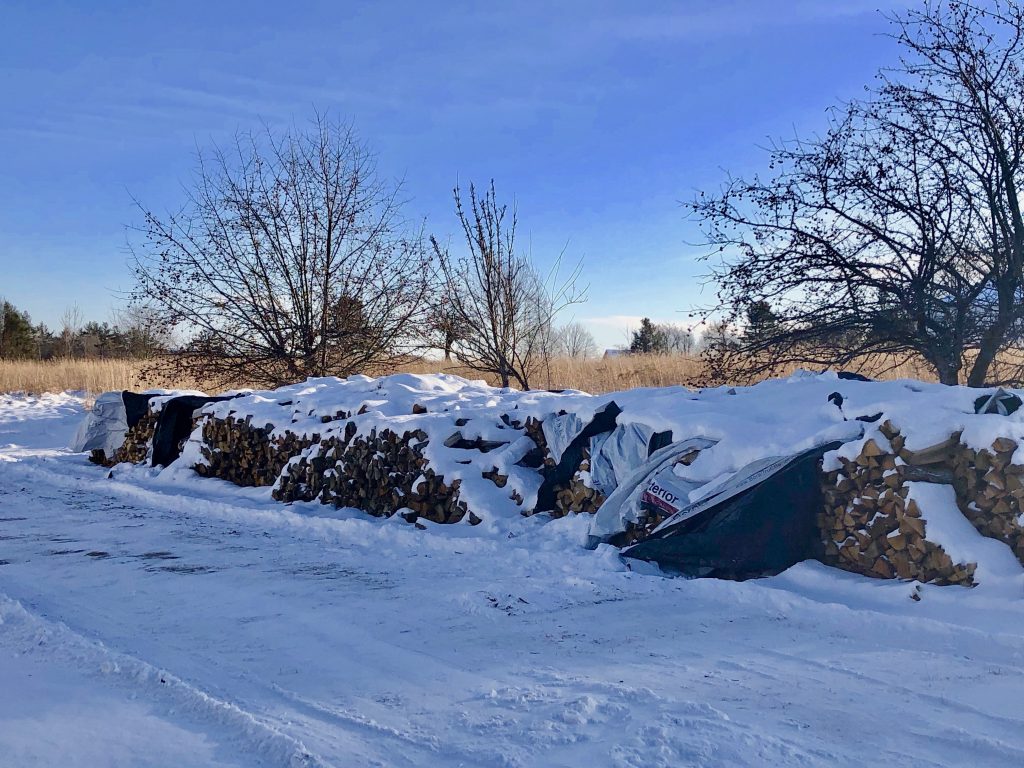20 December 2019
Dear Interested Readers,
Thoughts At The Winter Solstice
The Winter Solstice this year occurs tomorrow, December 21, at 11:20 PM while I am waiting for the opening skit of Saturday NIght Live. It will be the shortest day of the year, and one might argue that it is the day that has the longest history as a holiday. Our ancient ancestors had feelings and superstitions about the season of darkness. They probably realized that they were entering a long tunnel of cold and uncertainty when there would be nothing growing and their fishing and hunting would produce lower yields with greater effort. They built fires and burned torches to warm themselves and fight the darkness. They engaged in revelry as they thumbed their noses in defiance to the high risk of their own demise, or the possibility of the demise of many in their small community from the stresses of the coming months.
Most of the risk of the coming dormant season of cold has been mitigated by our collective ingenuity, but we have not been able to completely shake our anxieties or the fear of darkness. Is it just an accident that the events of the last week occurred as we approached our darkest day? Along the way from the ancient revelries around a fire on the darkest days to frantic last minute shopping on the Internet and at suburban malls, we began to see this season as a season of good cheer and hope where the icing on the cake is reflection that leads to resolutions of improvement for the coming year. Progress and enlightenment over the last five hundred years or more has given us the plausibility of the hope that next year might be better.
During this last week, if you were listening, you heard diametrically opposed, but earnest and vociferous people present their point of view as the only logical point of view for a thoughtful person. Both sides claimed that they were defending something important. The Democrats were defending the rule of law and the Constitution from the future damage that the president’s recent actions suggest he might be capable of causing on behalf of a privileged few. Republicans were defending the progress that they believe that this president has made in his battle to restore America to its former greatness, and perhaps more importantly to their position, they were defending the operational freedom that future presidents will need to guide us through even more difficult times. The sum total of their argument seems to be an earnest presentation of the idea that there was nothing wrong with the president’s conduct. One must draw the conclusion from their position that they feel that progress requires that we accept the fact that the time has come for our system of checks and balances to be considered an unacceptable encumberment to the wisdom of the executive. There is some truth in both positions.
The Democrats accomplished the objective of permanently marking the president as someone who they felt worthy of collective disdain. They have defended the principles of the Constitution and have scored some element of historical accountability. It is yet to be determined whether or not the Republicans will have made a more convincing argument. It has become common wisdom that the president will not be removed from office following whatever happens in the Senate.
I agree with the “smart money” that the president will not be removed from office unless something new happens. The current debate between Senate Minority Leader Chuck Schumer and Senate Majority Leader Mitch McConnell about whether or not there will be witnesses called in the Senate trial suggests that they both believe for the president to be removed from office the Democrats need a more dramatic piece of evidence that causes a greater expression of public anger before Senate Republicans will turn on the president that is serving their interests which they believe, or at least proclaim, are also the best way forward for America.
It is likely that as the Republicans have requested, the final verdict will be rendered next November. Will the Republican Senators who are vulnerable be voted out with the president because of their ill advised defense of him? Will the president be reelected as he sells enough of the undecided voters that he is better for their pocket books and their values than a Democrat who leans progressively leftward? Again, I believe that the future will be determined by events that are yet to occur, or by evidence of things that have happened that we don’t know yet. There is still much darkness, but it is my hope that as the days lengthen, the longer days and greater light will clarify much of what is in darkness now long before the Summer Solstice.
The coming election is the most significant event for healthcare since the passage of the ACA. There is no doubt that the ACA has been the most significant piece of social legislation of the last quarter century, and perhaps the greatest achievement of social legislation since the Civil Rights laws of the mid sixties. History does not give us the luxury of resting on our laurels. The Civil Rights gains of the sixties were an improvement of the status quo, and an end to Jim Crow, but they did not eliminate racism.
The Civil War, culminating in Lincoln’s emancipation of the those suffering in slavery and the passage of the 13th, 14th, and 15th amendments to the Constitution, did not create enduring equality and economic opportunity for former slaves, nor did those hard won advancements of the law ultimately secure the rights of Black Americans to vote or have equal access to accomodations, or equal opportunities in society. All those hopes and accomplishments were negated by the denial of their rights through the return of the doctrine of states rights that legitimized the Jim Crow laws of southern states. A deal made between Northern Republicans and Southern Democrats to settle the disputed election of 1876 ended Reconstruction and pardoned the treasonous acts of most of the leaders of the Confederacy and its rebel army. In 1883, less than 20 years after Lincoln’s death, the Supreme Court abolished the gains for equality imagined by the victory for the Union in the Civil War by ruling in favor of the states, not the federal government, as the arbitrator of rights. Jim Crow and legal segregation replaced the dreams of opportunity for millions of people as they were subjected to a new, and in some ways worse, form of institutionalized abuse.
Between those two reactions to progress, it is easy to argue that the South won the peace after it had lost the war, and Jim Crow lived for ninety years of legal segregation. Yes, we can lose our hard won gains for more than a lifetime.
Likewise, after dancing with the ideas that healthcare is a right, that women have control of their own reproductive health, and that universal coverage is the aim of a just society, fifty years of progress is vulnerable to a single election. There are cases pending before a Supreme Court that has a conservative 5 to 4 majority that could abolish the advancements of the ACA and negate the gains of Roe v. Wade. Potential court rulings during this next year, coupled with an election where a total minority of voters who embrace their personal financial security over progress toward economic equity and a Triple Aim that has the vigor to correct the injustices of the social determinants of health, could give an Electoral College victory to a president who will endeavor to continue an attack on progressive ideas for a more just society. All the gains of 2008, 2012 and 2018 could be lost on one night ten and a half months from now.
The antidote to the darkness of the Winter Solstice is hope and the resolve to improve. To those attributes I would add the resolve to defend the gains that have already been made. We are not yet at risk of reverting to dancing around bonfires to fight off the demons that are killing the light, but it is good to remember that there are many potential versions or visions of a dystopian future. In my personal version of a frightening dystopian future, we just slide back to where we were before we evolved the wisdom of Crossing the Quality Chasm that all care should be patient centered, safe, efficient, effective, timely, and most importantly, equitable.You can make the picture darker by throwing in the likely outcomes of continued global warming, and the impact those changes will universally have on the health of humankind. The latest news is that we have less time than we thought before that darkness arrives. The next ten months will tell all. What’s your plan for dealing with the darkness that threatens our collective health?
Happy Holidays And Best Wishes For Everyone (with qualifications and regrets) From My Little Town!
I like farm stands and garden shops any time of the year. The farm stand that is pictured in today’s header puts the holiday spirit right in the center of my little town. The attractive retail face of Spring Ledge Farm sits on the north end of Main Street. Behind the stand is the farm and the greenhouses where many of the items that are sold are grown. There was a time when little towns like mine that had farms abutting Main Street were pretty common. Now condominiums, or big box chain stores occupy land where corn once grew. Not so in my little town. We are not the farming community that we once were, but because of our collective wealth we have been able to put land into trusts rather than commercial development.
Our transition to a low key resort area began in the late nineteenth century when the railroads began to bring in vacationers from Boston, New York, and a host of other places that were connected by the rails. We aren’t the White Mountains, and we don’t have a huge lake like Lake Winnipesaukee, but we don’t have their traffic either. Sometimes less is better. Our mountains are modest and our lakes are smaller than the one ones that denizens of the East Coast metropolises can easily access now on Interstate 93. We are on the quiet side of New Hampshire not far up Interstate 89. We have a quieter life of summer theater and concerts on the town green, followed by similar pleasures in each season. The cycle of pleasant events for the fortunate in my neighborhood hasn’t changed much for more than a century.
By choice, we have no Burger Kings, MacDonald’s, Taco Bells or Papa Gino’s. I wish we had a Starbucks, but I am willing to accept the tradeoff for the continued lack of franchise eateries. I am happy that we don’t have a Walmart or a CVS store. I do resent the fact that a few years ago Dunkin’ Donuts was able to get its toe in the door, but at least it is located in an old house on Main Street near the firehouse. It doesn’t sit in the middle of a mass of asphalt with a drive through window. I avoid Dunkin Donuts, and prefer buying my coffee from the chatty lady who opened “Grounds” in another old house across the street from the town green. In my little town there is one dry cleaners, one super market, one hardware store, and yes we have one liquor store that is operated by the state. I guess that is how we fund government when we “live free or die.”
The farm stand at Spring Ledge Farms changes its appearance with each season. As you can easily see, the holidays are a big event at Spring Ledge. I drive by several times a week as I go about my business and enjoy seeing the cycle of the seasons that it showcases. I also realize that as much as I love my community, and as comfortable it is for me, it is more like a Norman Rockwell picture that generates feelings of nostalgia than it is a realistic picture that represents life for most Americans.
A bountiful life like the one I enjoy in New London is not available for everyone in this country. The good life I enjoy requires the disposable income that is necessary to shop at Springledge, where the prices are necessarily high to support the image of health and wholesomeness it represents, but this pleasure is not available to many of the people who live in the shadows of our community and down the country roads that run into the hills where rusted trailers are the housing of many hard working people, and are parked within walking distance of multimillion dollar lakeside properties.
There are many people in New London who struggle with the economic justice and the fairness of the bimodal nature of the economics of our community and country that enable the most fortunate of us to enjoy a picturesque environment while nearby our neighbors struggle to pay their electric bill or pay unexpected medical bills. At the other end of Main Street in the community center of the oldest, most picturesque church in town, there is a busy food bank.
There are active programs that offer holiday dinners, and Christmas gifts for families and children in need. We enjoy dinners and silent auctions that are fundraisers for noble activities like the backpack program that gives poor children a backpack full of food to take home for the weekend. These are good things that make us feel better, but they are only momentary relief and not solutions for problems that are manifested by high rates of death from drug overdoses, and increasing numbers of children that live in poverty that is complicated by turbulent domestic environments. There is nothing wrong with charity, everybody feels good about giving, but you can expect a fight if someone suggests taking the steps forward to create the equity and opportunities that might eliminate the need for charity.
Perhaps, a good visual image of the dichotomy of experience that exists in my little town and across our country, is that a little further down Main Street as it returns to being state route 114, about a half mile on the other side of Spring Ledge Farm, is the wood pile that we maintain to make deliveries to families that are cold and are trying to either heat with wood alone, or with some mixture of wood, propane, oil, and electricity that they can afford. The poorest families and individuals do qualify for a federal program that may cover some of their heating needs, but the subsidies are rarely enough to get them through the winter. There are people who in reality are poor, but not poor enough for government help, who also need our wood. To not be poor enough for help is frustrating when your propane tank is empty, your woodpile is gone, and your wallet is empty. I fear that across our country there are places where the need is even greater than in my little town. By statistics, New Hampshire had the lowest rate of poverty in the nation. Heaven help the rest of the nation.
This holiday season, I will continue to enjoy the beauty and nostalgic feelings that my little town can offer me, but I can’t help but wish that what I enjoy, or some other equally satisfying vision for different tastes, were available to everyone. I know my dream is a dream that won’t come true before we go around the cycle of the seasons to the next winter solstice, or for dozens or hundreds of more cycles to come, but I believe that we must ask ourselves what changes must be launched now for the hope that someday in the future there will be more opportunity and more equity 365 days a year for everyone. This holiday season is a good time to commit to begin that change now, even if the job won’t be completed in our lifetime.
The holiday season should be a season of expectation and hope for everyone. I hope that your holidays will be a joyous experience for you that brings you closer to family and friends. I also hope that we can all resolve that in the new year we will work diligently to extend the opportunity of an abundant life and happy holidays to every child, woman, and man here in New Hampshire, in America, and to everyone on the planet.
Happy Holidays! Be well, take good care of yourself, let me hear from you often, and don’t let anything keep you from doing the good that you can do every day,
Gene




